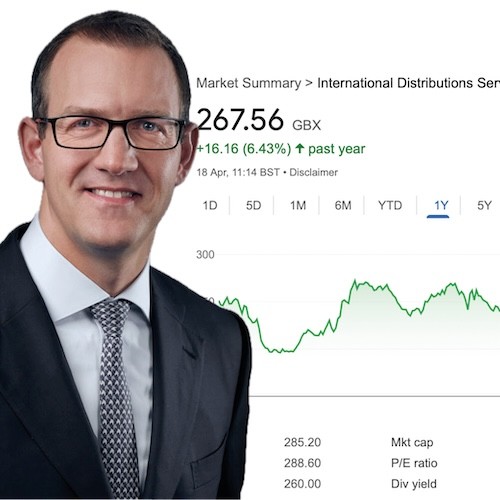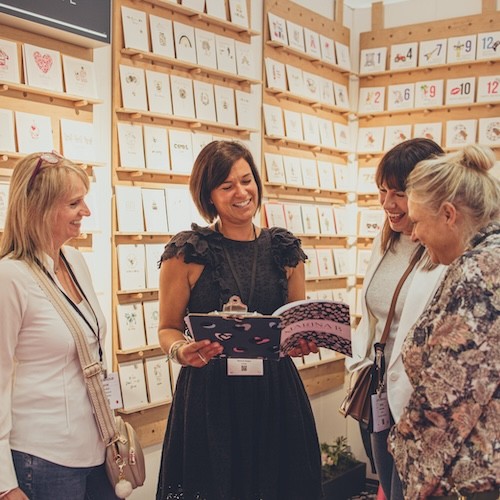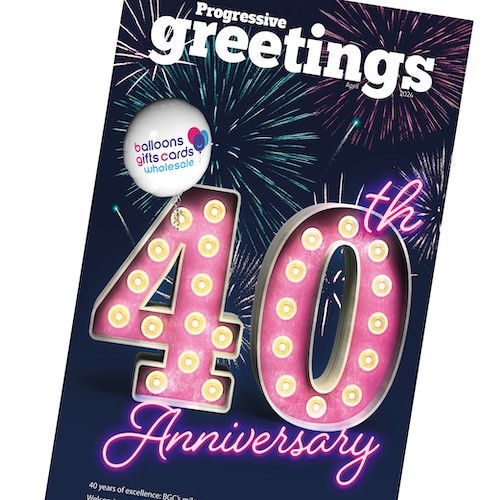Jeremy Bacon is ceo of The Sherwood Group, a leading greeting card printer and packaging manufacturer which has just been crowned the Best Social Stationery Printer (which covers greeting cards in the PrintWeek Awards.
Its sister company, Loxleys, won a High Commended award in the same category.
Jeremy led a high-powered workshop at last week’s GCA AGM & Conference (on October 17) in which he shared his considered opinion as to the likely implications of Brexit on the greeting card industry.

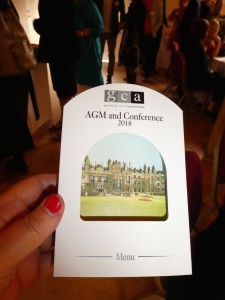
Here he shares some of his notes…
Where we are now? How did we get here? And where is it likely to go?
How will Brexit affect the greeting card industry? What are the opportunities and threats for the greeting card sector and how can we to plan for them?
Brexit: The ‘need to know’ questions and answers
When will we get a Brexit Deal or will we have a cliff edge Hard Brexit?
We should have announced a deal on 17 October – ironically the day of the GCA AGM. I was speaking in the afternoon sessions that day and I could have had a very short presentation!
The EU always goes to the wire so I assumed that my content would be unchanged.
We should have ‘a deal’ by the end of November, but that will only be a basic stripped down deal to keep the planes flying and the ports open.
At the moment the two sides are arguing over the ‘Island of Ireland’ – a line in the Irish Sea and should it even be a line. History shows they should be able to resolve that problem.
If a deal is not done by Christmas then we should prepare for the worse.
The big issue is they have not even talked about trade, which will not start until we have entered the transition period at the end of March 2019.
If we get a deal on the basics when will we know about trade?
Business hates uncertainty and the economy has deteriorated since the referendum on the 23 June 2018.
It generally takes between seven and ten years to negotiate a trade agreement, so we are in for a long period of uncertainty. We should not rely on a deal being done before the end of the transition period.
What are our red lines and the EU red lines?
Our Red lines are:
Northern Island cannot stay in the EU, even as a backstop
The EU red lines are:
The UK cannot be better off outside the EU – therefore we must be worse off.
No cherry picking of the EU four principles.
The reason we joined the EU in 1973 was to improve growth in our economy.
Our trade moved away from the America and the Commonwealth and moved towards Europe. Today 60% of our trade is with Europe and we now want to leave to improve growth!
What does this mean for the economy?
I will cover key economic indictors – GDP, interest rates, inflation, employment and exchange rates.
Gross Domestic Product
In June 2016 we (the UK) was the fastest growing economy in Europe, we are now one of the slowest.
I think we can look at the recent past to predict the future the European economy is growing at 2.5% to 3% and our economy is growing at 1.5%. The consensus of forecasts predicts our growth at being 1.5% lower being out the EU.
Inflation
Inflation increased after the referendum to peak at 3% in early 2018 as the cost of imports rose with a fall in £Sterling. The rate has since fallen to 2.4%.
If we have a hard Brexit it is widely predicted that exchange rates will fall, increasing Inflation.
Employment
The one positive sign from the economy has been the growth in the percentage of the workforce in employment and the fall in unemployment from 8% in 2014 to 4.0% now. Economists argue that this is below the rate of full employment.
Any restrictions on the free movement of labour are likely to result in skills shortages and wage inflation.
Exchange Rates
Sterling has fallen against both the Euro and the $Dollar since the referendum.
This has caused inflationary pressures within the economy.
On the eve of the referendum £sterling was at $1.50 before falling to low of $1.20 and $1.30 today.
The Euro has fallen from 1.33 to 1.1 since June 2018.
This has been during a period of global currency devaluation to reduce debt as a proportion of income caused by the financial crisis of 2008.
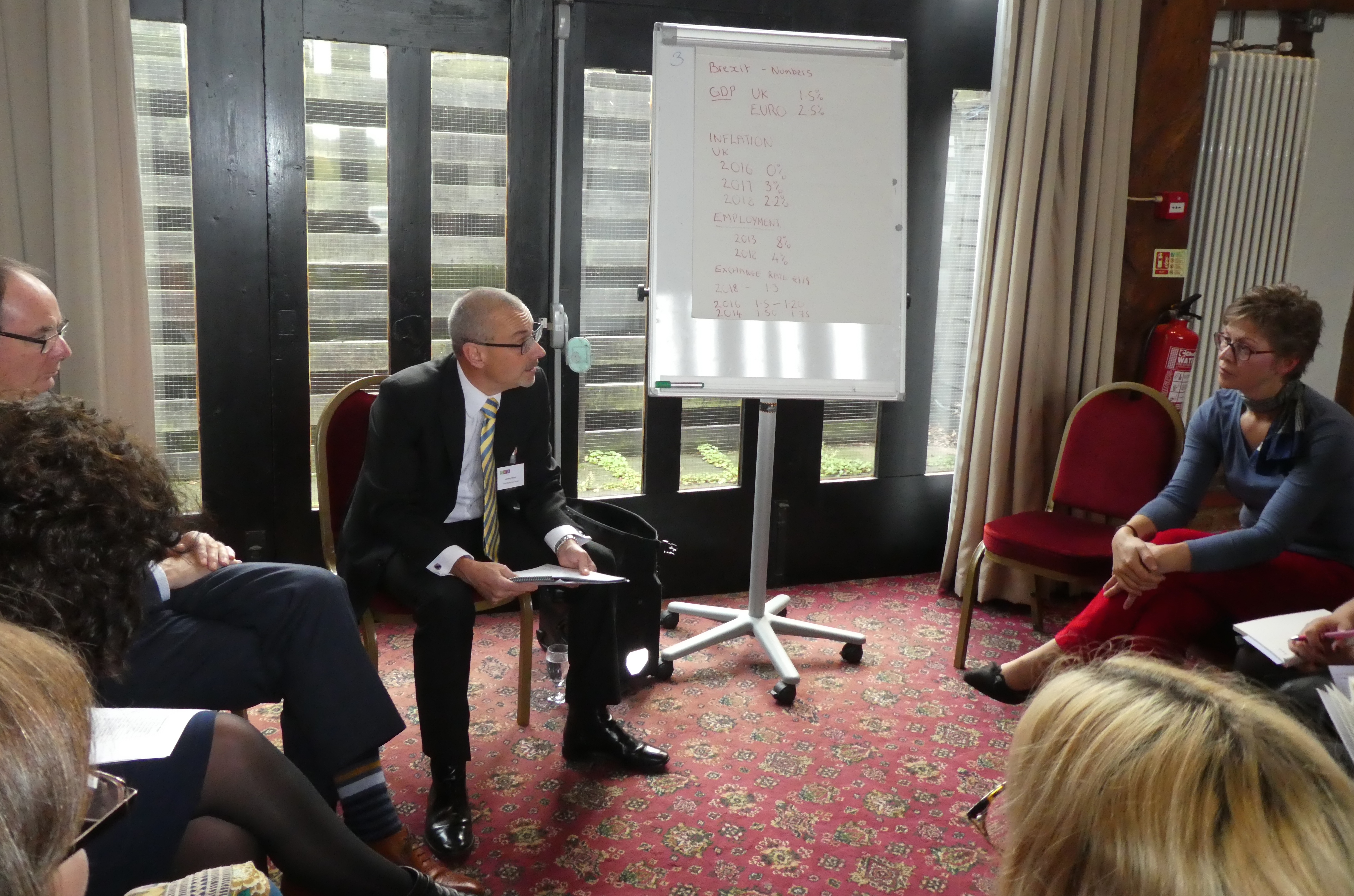
What does this mean for the greeting card industry?
The greeting card market in the UK is a robust market and relatively immune to the economic climate. It is most likely that the UK and the EU will agree a reasonable outcome for all parties.
People will continue to give and receive greeting cards after Brexit, but there will be changes.
If we are going to be poorer as forecasts suggest, there will be a continued move to value cards.
It is likely we will see more retail failures if the economy continues to decline and online shopping continues to grow. We could see business failure in the whole supply chain.
Exchange rates creates opportunities for Export sales but also causes cost inflation pressure
What does this mean for my business?
At Sherwood we wrote a contingency plan within 100 days of the referendum.
We identified a number of opportunities and threats and concluded that Brexit could be good for our business if we had no nasty surprises. We updated the plan after a year and again last month.
I would recommend having a short-term and a long term plan.
If we do not conclude a basic agreement by Christmas then I would encourage publishers to increase stock holdings if we get disruption to supply. We have customers in China who are already building everyday stock to accommodate Brexit and Chinese New Year. In the financial crisis of 2008 the greeting card market was extremely resilient as publishers converted their warehouse to cash. This could be a good strategy.
The largest impact is likely to be cost inflation if £sterling continues to decline.
The largest element of cost of making a greeting card is board, this can be between 25% on coated boards and 45% on uncoated boards. We import most of our board from Europe and have already had cost increases. We may face import tariffs if we conduct trade under WTO guidelines. This may also affect UK manufactured board that is used by the greeting card industry as the largest cost of paper is wood pulp, which again is could subjected to WTO tariffs.
Greeting cards are still a high margin product where the raw material costs a few pence and the average retail price is £1.75. As an important supplier to the greeting card industry we can work with publishers to mitigate inflationary cost pressure and produce product faster allowing stock reduction.
Recruitment is also likely to get harder and more expensive after Brexit. European workers will certainly gain employment in higher growth european economies and may lose the right to work in the UK after the transition period.
Full employment is likely to increase wage inflation.
In conclusion, the UK greeting market is a vibrant and resilient industry – and people will give and receive greeting cards after the Brexit comes into force on 29 March 2019. The market will change but there will opportunities and threats for all of us. We just need a plan to deal with the change.

Top: The weekend saw people come out in their droves to campaign for a reversal of the Brexit decision.











